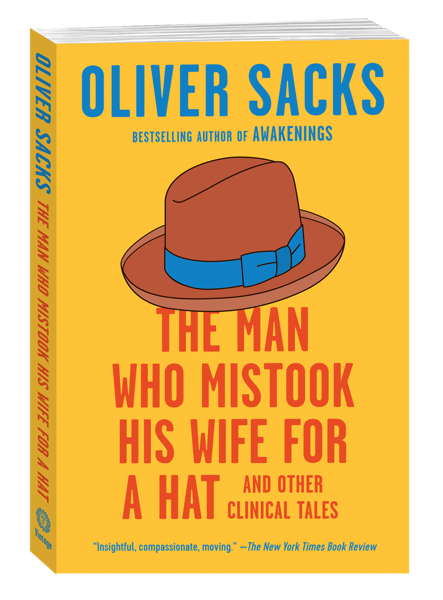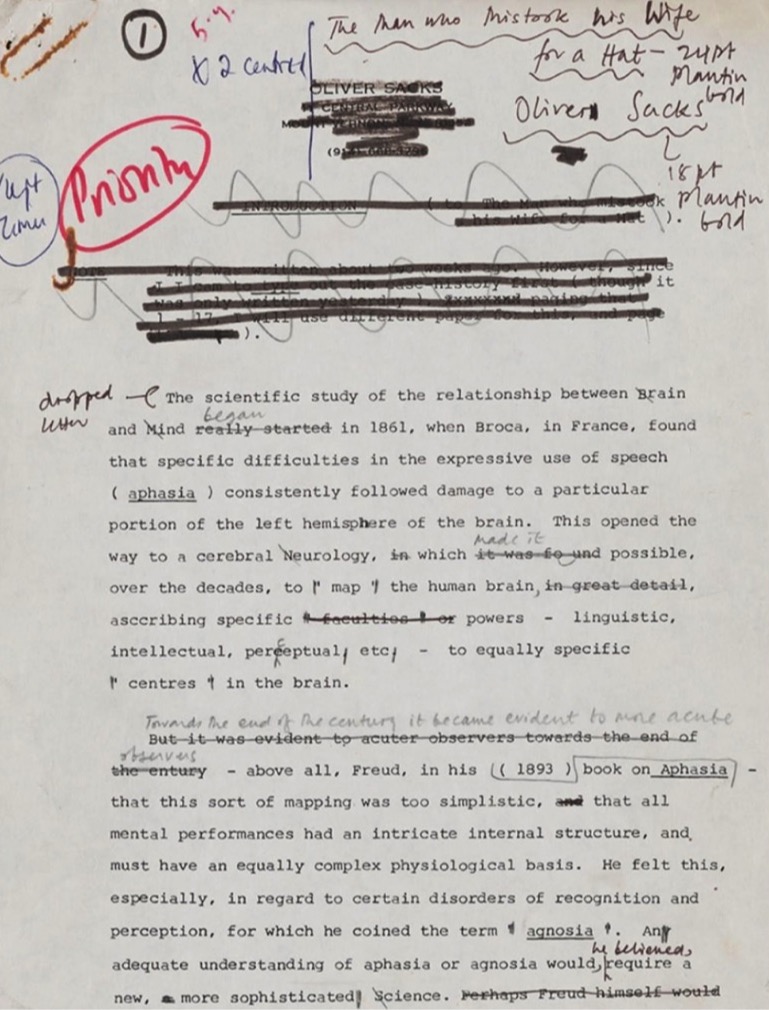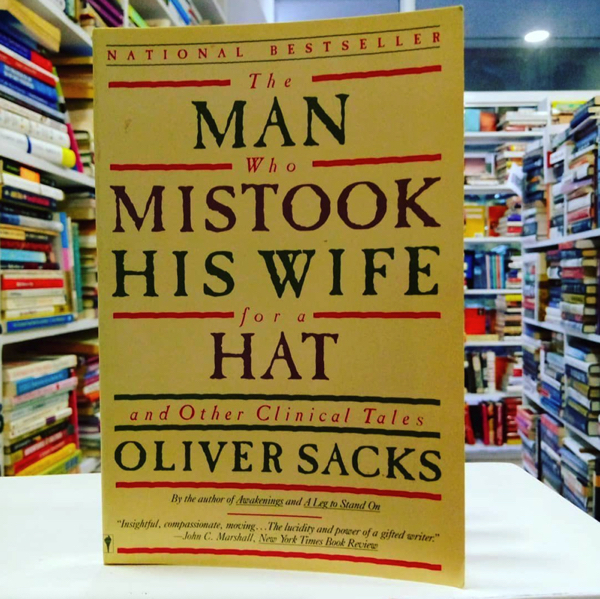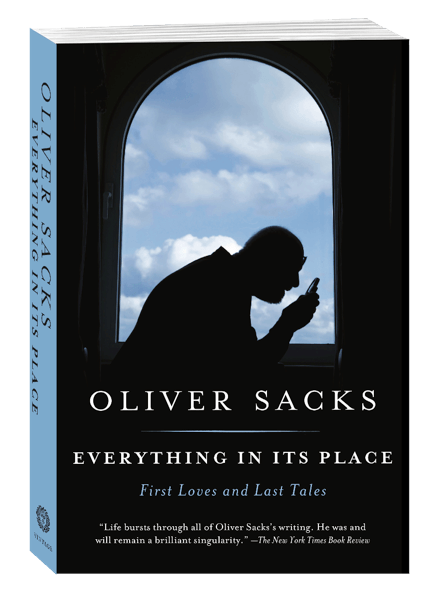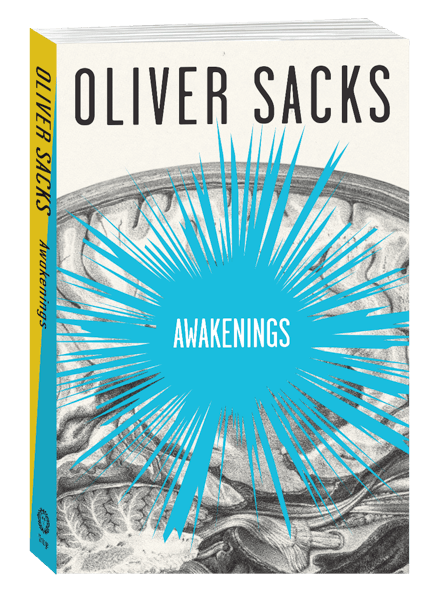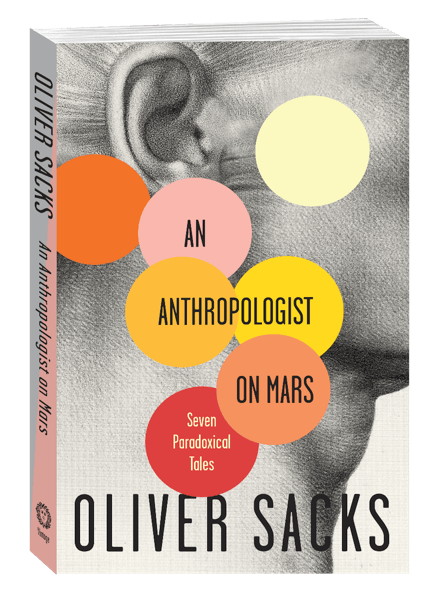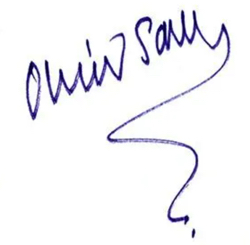“[Sacks] captured both the medical and the human drama of illness . . . He would see patients not as collections of deficits but as unique individuals… He captured their experiences, their hopes and fears, their humour and perseverance. It is heroic stuff, and he was well aware of its mythic resonances.”
— Atul Gawande
The Man Who Mistook His Wife for a Hat
“Short narratives, essays, parables about patients with a great range of neurological and neuropsychiatric conditions, written in a lighter, more informal style than I had ever used before. To my intense surprise (my publisher’s too!) this book hit some nerve in the reading public, and became an instant best-seller.” — Oliver Sacks
Here Dr. Sacks recounts the case histories of patients lost in the bizarre, apparently inescapable world of neurological disorders: people afflicted with fantastic perceptual and intellectual aberrations; patients who have lost their memories and with them the greater part of their pasts; who are no longer able to recognize people and common objects; who are stricken with violent tics and grimaces or who shout involuntary obscenities; whose limbs have become alien; who have been dismissed as retarded yet are gifted with uncanny artistic or mathematical talents.
If inconceivably strange, these brilliant tales remain, in Dr. Sacks’s splendid and sympathetic telling, deeply human. They are studies of life struggling against incredible adversity, and they enable us to enter the world of the neurologically impaired, to imagine with our hearts what it must be to live and feel as they do.
🎧 Listen to James Naughtie from the BBC as he talks to Dr. Sacks about The Man Who Mistook His Wife for a Hat. Recorded for the BBC Book Club, 03 Jul 2005.
📷 Sacks’s typescript of “Hat” was published by the London Review of Books for their 40th anniversary in 2019.
Praise for The Man Who Mistook his Wife for a Hat
“Populated by a cast as strange as that of the most fantastic fiction . . . Dr Sacks shows the awesome powers of our mind and just how delicately balanced they have to be.” — Sunday Times
“Insightful, compassionate, moving . . . the lucidity and power of a gifted writer.” —The New York Times Book Review
“A provocative introduction to the marvels of the human mind….” —Clarence E. Olsen, St. Louis Post Dispatch
“Dr. Sacks’s best book….One sees a wise, compassionate and very literate mind at work in these 20 stories, nearly all remarkable, and many the kind that restore one’s faith in humanity.” —Noel Perrin, Chicago Sun-Times
“Dr. Sacks’s most absorbing book. . . . His tales are so compelling that many of them serve as eerie metaphors not only for the condition of modern medicine but of modern man” —New York Magazine
“This book is for everybody who has felt from time to time that certain twinge of self-identity and sensed how easily, at any moment, one might lose it.” —The Times
“Oliver Sacks has become the world’s best-known neurologist. His case studies of broken minds offer brilliant insight into the mysteries of consciousness.” —The Guardian
“Sacks explores neurological disorders with a novelist’s skill and an appreciation of his patients as human beings.” —Publishers Weekly
“Sensitive yet lively. . . . This book ranks with the very best of its genre. It will inform and entertain anyone, especially those who find medicine an intriguing and mysterious art.” —Kirkus Reviews
Feedback from Social Media Followers
“I read this in college while studying psychology and loved it. The title and message stayed with me and changed how I perceived others forever.”
“One of my high school composition teachers recommended it to me. That was 30 years ago, and I still have my copy!”
“One of the most influential books ever. I was drawn into neuroscience after reading it and never looked back.”
“I happened upon this book on a friend’s father’s bookshelf over 30 years ago and was gripped from the first pages.”
“My first son is named after Oliver. I’m a neurologist and I was reading this book when I got pregnant!”
Follow along on social media and engage with Oliver Sacks fans around the world!
Inspired by The Man Who Mistook His Wife for a Hat
A one-act opera adapted by Michael Morris, music by Michael Nyman, based on The Man Who Mistook his Wife for a Hat. Produced and libretto by Christopher Rawlence. First performed at the Inst. of Contemporary Arts, London, Oct. 30, 1986. U.S. Premiere at the American Music Theater Festival, Philadelphia, Sept. 30, 1987. Performed at Lincoln Center Theater, New York City, July 14, 1988.
Theatrical production by Peter Brook, inspired by author Oliver Sacks’s The Man Who Mistook his Wife for a Hat. First production at the Theatre des Bouffes du Nord in Paris, 1993; English version, “The Man Who…,” first performed at the National Theatre, 1994 and 1995; Brooklyn Academy of Music, 1995; and elsewhere.

